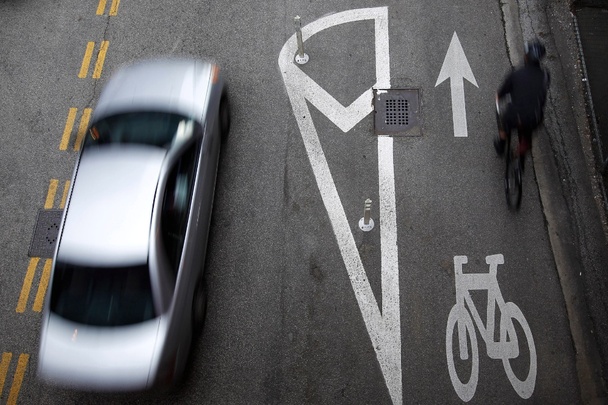
Since 2005 Americans have been driving far less than previous years according to facts highlighted in a new video by Streetfilms, a company that documents transportation design and policy issues.
In dismissing arguments that the decrease in car usage has been tied to the economy and gas prices, the video raises a more interesting fact tied to the trend, which is that more people are using other means to get from point A to point B.
According to the Streetfilms short, the annual number of miles traveled by car among 16 – 34 year-olds dropped 23 percent from 2001 to 2009 as more people have started to walk, bike or take public transit to and from destinations.
Citing what is now an eight-year trend, the report also indicates that for the same 2001 and 2009 period, more than a million seniors stopped driving as well.
Another report showed that in 1998, 64.4 percent of potential drivers 19-years old and younger had drivers licenses. By 2008, that rate had dropped to 46.3 percent, according to the Federal Highway Administration.
A recent study by Gartner research revealed that, if forced to choose, 46 percent of all 18-to-24-year-old drivers in the United States would choose access to the Internet over access to an automobile, which all begs the question – what does the future look like for the car?
Will automobiles be “primary transportation only for people in rural areas” as one commenter posted in a response to the Streetfilms report? Or will the uptick in new car sales help fuel the development of more production vehicles with the kind of technology and other features more fitting for today’s urban commuter?
Of course, we can only speculate what the actual future holds when it comes to the automobile. But it’s clear in everything from the growth of car sharing programs to the influx of motorized scooters in the city, that America is undergoing a radical shift when it comes to transportation.
To deny it is simply being out of touch with reality and any automaker looking to appeal to future car buyers would be wise to take note.
What about you? Are you driving less – or driving differently? Car-sharing? Biking? Taking mass transit? Why? Leave your comment below.


